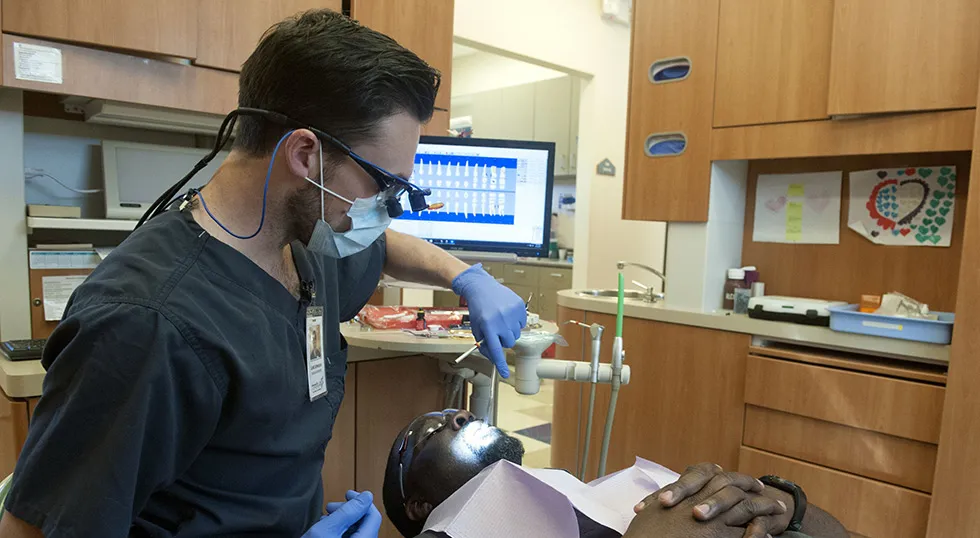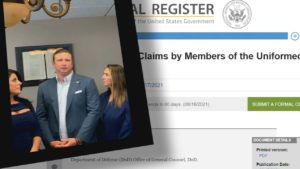Introduction
Military dental care is essential to maintaining the overall health of service members. However, when dental professionals in military facilities make mistakes or fail to provide adequate care, the consequences can be significant. Faulty military dental care can lead to severe pain, further dental issues, and even long-term health problems. If you’ve been injured due to military dentist negligence, it’s important to understand your legal rights and options.
At Khawam Ripka LLP, we specialize in representing military personnel and their families in medical malpractice claims, including those involving dental care in military facilities. This blog will help guide you through the process of seeking justice for injuries caused by substandard dental care while serving in the military.
What Constitutes Faulty Military Dental Care?
Faulty dental care in military settings can take many forms, including:
- Failure to diagnose or treat dental conditions: If a dentist fails to properly diagnose a dental issue, such as cavities, gum disease, or oral cancer, the condition may worsen, leading to more significant problems.
- Surgical errors: Mistakes during dental surgery, such as improper extractions, nerve damage, or incorrect placement of dental implants, can cause permanent harm.
- Anesthesia errors: Incorrect use of anesthesia can result in complications, including nerve damage or allergic reactions.
- Improper treatment or neglect: Failing to follow up with patients after dental procedures or not providing adequate care instructions can contribute to further complications.
If you believe that your dental care was mishandled, it’s essential to explore your legal options to secure compensation for your injuries.
Legal Process for Filing a Military Dental Malpractice Claim
Filing a military medical malpractice claim for faulty dental care involves navigating a unique legal process. Unlike civilian cases, military dental malpractice claims are subject to the Federal Tort Claims Act (FTCA) or the Military Claims Act (MCA), depending on the circumstances. These acts provide the framework for pursuing compensation for injuries caused by negligence within the military healthcare system.
Steps to Filing a Claim:
- Understand the Feres Doctrine:
The Feres Doctrine is a significant legal barrier for active-duty service members seeking compensation for injuries that arise from military service, including dental malpractice. Under this doctrine, service members cannot file lawsuits for injuries that occur incident to service. However, there are exceptions under the FTCA or MCA, which may allow compensation under specific circumstances. - File an Administrative Claim:
To pursue compensation, service members must file an administrative claim through the military’s claims process. This typically involves submitting a Standard Form 95 (SF-95), which includes detailed information about the dental malpractice incident, including:- A description of the incident
- Medical records supporting the claim
- Expert opinions from medical professionals if necessary
- Documentation of any damages, including medical costs, lost wages, and pain and suffering
- Claims Review:
After submission, the claim will be reviewed by military claims personnel, who will evaluate the evidence and determine whether the claim is valid. If the claim is denied, service members may have the right to appeal or pursue legal action through other avenues. - Seek Legal Advice:
Given the complexities of military dental malpractice claims, it’s crucial to seek legal advice from experienced attorneys who specialize in military medical malpractice. A skilled attorney will ensure that all necessary documentation is properly submitted, and they will help navigate the complex process to ensure the best chance of success.
Common Types of Dental Malpractice in the Military
While military dental facilities provide care for service members, errors can still occur. Some of the most common types of dental malpractice include:
- Failure to Diagnose: If a dentist fails to diagnose issues such as oral cancer, gum disease, or even tooth decay, these conditions may progress, leading to further damage and complications.
- Surgical Errors: Mistakes made during dental surgery, such as tooth extractions, implants, or root canals, can result in significant harm, including infections, nerve damage, and permanent disability.
- Anesthesia Errors: Incorrect use of anesthesia during dental procedures can lead to complications, including damage to the mouth, nerves, or respiratory issues.
- Prolonged Treatment Delays: Delays in receiving appropriate care or follow-up after dental procedures can lead to worsened conditions and require more extensive treatment down the line.
If you have experienced any of these issues as a result of military dental care, you may be entitled to compensation for your injuries.
Who Can File a Military Dental Malpractice Claim?
Not everyone is eligible to file a claim under the FTCA or MCA. Eligibility depends on the specific circumstances of the incident and the individual’s military status:
- Active-duty service members: Generally, active-duty personnel cannot file lawsuits against the government due to the Feres Doctrine. However, administrative claims may still be filed under certain circumstances.
- Veterans: If a veteran has been harmed due to dental malpractice in a VA facility, they may be able to pursue a claim under the FTCA.
- Military dependents: Family members of service members who have received dental care at military facilities may also be eligible to file a claim for injuries caused by negligent care.
- Retirees: Retired military personnel retain the right to file claims for injuries related to dental care provided through military healthcare systems.
Why Choose Khawam Ripka LLP?
Khawam Ripka LLP specializes in military medical malpractice, including cases of faulty dental care. Our team has extensive experience representing service members and their families in complex military healthcare claims. We are committed to securing the compensation and justice you deserve for injuries caused by negligence within military dental facilities.
Our legal team can guide you through every step of the claims process, ensuring that your case is handled with the utmost care and attention to detail. From filing administrative claims to representing you in appeals, we are here to advocate on your behalf.
Contact Khawam Ripka LLP
If you or a loved one has been injured due to faulty military dental care, don’t hesitate to reach out to Khawam Ripka LLP. Contact us for a free consultation, and let us help you understand your rights and legal options.

 Call Now- Open 24/7
Call Now- Open 24/7





